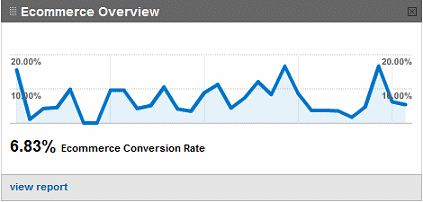Many shop owners have never considered how people search. Regularly contract customers are blown away by the search phrases they get when they receive their first weekly rank report. They expect to see search phrases like “iPod” or “Apple iPod”, instead of “buy iPod Nano” or “buy iPod Touch”. Fact is, there is a very distinguishing difference between these search queries… Some are customers and some are not.

Agreed, it’s a badge of honor to be on page 1 for a nice “big box” search phrase, but these phrases are not our best converting phrases. More and more people search more intelligently. They search with additional words to refine their results, they search with search engine operators to narrow their results and they inevitably search using natural language.
From the very young to the not so savvy, searchers are moved to add words and thought to refine their searches. They key here is to think like a searcher.
For example, on a pet store we care for we can see very blatant examples of people refining their searches. We can additionally see that people using longer, more natural queries convert substantially better.
| Query | Conversion % | Visits |
| $5.00 dog clothes | 9.87% | 120 |
| grooming products for dogs | 12.46% | 86 |
| pet supplies | 1.2% | 2654 |
| dog toys | .56% | 1587 |
People using longer, more qualified search terms are far more likely to be shoppers, vs information seekers. Fact is the Internet has become the first tool of choice in most households worldwide for the answer to any question. How many times have you told your child to “Google it”?
The point here is the defining difference between those seeking information and those wishing to make a purchase. A great example came up the other day on the phone with a customer. John sells musical instruments. We were discussing his site and things needed to improve his usability and search rank, when he popped off with I have moved to page 3 for “musical instruments”. He was pretty excited about this and asked how to move this to page 1. I simply responded with why?
This may seem odd to you, but looking at John’s analytical data tells a much different story. You see, while John is getting nice traffic from “musical instruments”, they are not shoppers overall. These are people looking for a variety of things like music for their instrument, cleaning instructions, musical instrument history, facts and other data including a few shoppers.
Further inspection of John’s data shows us clearly that his customers (sales) come from people searching far more intelligently. Search terms like “student flute”, “alto saxophone blue”, and “$59.99 violin” for example are more than 5 times more likely to make a purchase.
Why do people buy online? Convenience right? Convenience is a huge factor indeed, but also selection, price and time are big metrics as well. So when people seek to buy things online, they have learned, or been conditioned, to search more effectively and save time. If I want to buy a flute for my 8th grader, I would certainly NOT search for musical instruments… But rather I would search for student flute, maybe qualifying it with a price query and possibly adding something from the note the music teacher sent home as well. But… I am clearly a shopper and not an information searcher.
Making your pages more available in search results for these higher converting phrases is really very simple. When you write for your website, use natural text. The best product descriptions would use the very same words, descriptions, examples and phrases as you would use to describe the product to a customer on the phone. This just makes sense. People will search with the words and language they understand, not necessarily what you may think they search for.
This clearly falls under the “content is king” system, as we need to be more in-tune with our customers. We need to know and understand how they shop and write the copy they need to find us, make a qualified purchase decision and complete a transaction on our online stores.
Very certainly, people searching for “iPod guides” and other related informational data can be converted in to a sale as well… However, it’s much less likely than the guy searching for “buy iPod classic” indeed.
